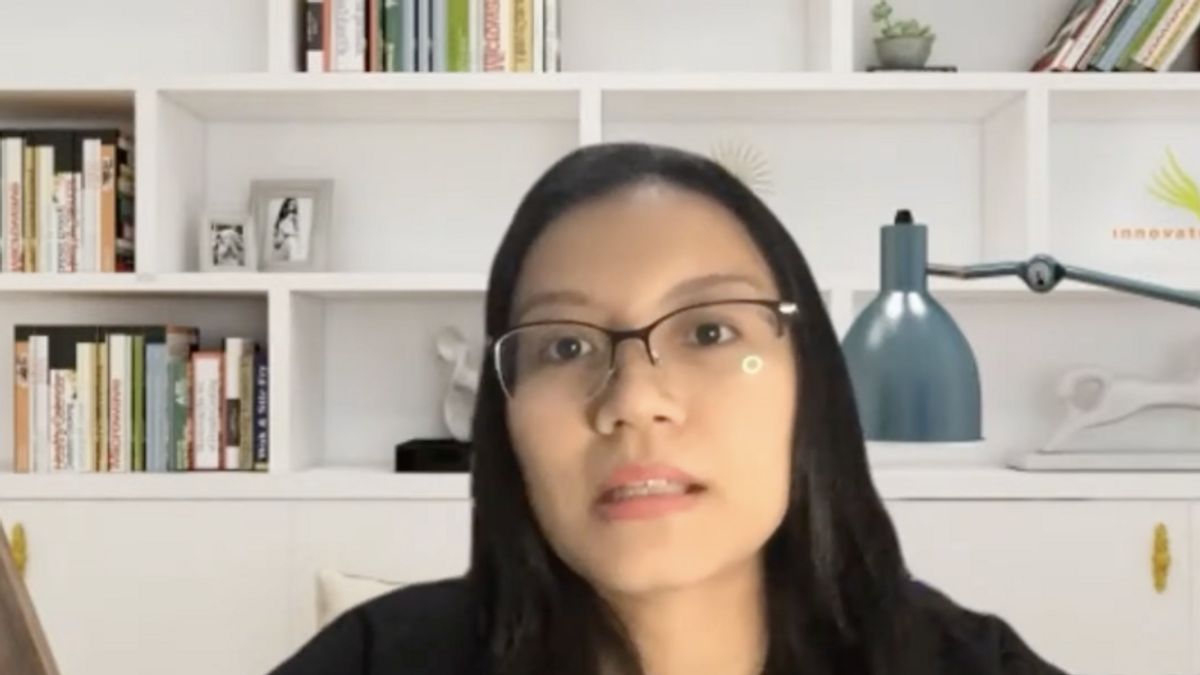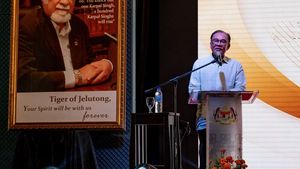JAKARTA - The COVID-19 pandemic has also accelerated the era of digitalization in the country. Thus, companies in various fields, including the field of Micro, Small and Medium Enterprises (MSMEs), must adapt more to technology.
It is predicted that the digital economy will continue its success, although the pandemic has slowly turned into an endemic, and people are back in their activities outdoors.
Head of the Center of Digital Economy and SMEs Index, Eisha M Rachbini assessed that the digital economy continues to have prospects in the future. According to him, the COVID-19 pandemic has changed the economic order to the allocation of resources.
"With our large population, there is a market share. Then in the future the younger generation and the productive workforce will also continue to increase. These are children of the Z Alpha gene and so on have extraordinary and creative abilities, and technology is increasing," he said, in Jakarta, Thursday, September 8.
Eisha said in the Digital Economy SEA report, Indonesia's digital economy is the largest in ASEAN with a potential value of 146 billion US dollars in 2025.
MSMEs are also the backbone of the economy in Indonesia because they are able to contribute to GDP reaching 61 percent and absorb labor up to 97 percent.
However, continued Eisha, in the midst of the uproar over digitalization, there are still many MSMEs who cannot use technology. For this reason, it is necessary to synergize the government and the private sector to carry out digital literacy.
"I think increasing the digital literacy of the Indonesian people continues to be pursued by both the government and the private sector. For example, the government, its policy maker Kominfo, has digital.id literacy. The private sector also has programs aimed at its counterparty," explained Eisha.
According to Eisha, digitalization is an unavoidable phenomenon. So, so that there is no large inequality, stakeholders need to include MSME actors who are currently in low digital literacy conditions, due to limitations.
For example, such as inadequate digital infrastructure, the ability and skill of low technology, as well as access to low digital technology because there is no capital.
Meanwhile, the Executive Director of CORE Indonesia Mohammad Faisal revealed that the development of UKKM digitization was driven by demand and supply beyond government policies, although the government also participated.
Based on the results of the CORE survey, as many as 70 percent of MSME actors experienced an average revenue increase of 30 percent by joining the digital ecosystem.
"This means that during the pandemic, if you look at sales compared to the pandemic, it still goes down, but at least by entering the e-commerce and e-payment platforms, he can be helped not to drop sharply, not to go bankrupt. The benefits are there," said Faisal.
Faisal assessed that the government should optimize comprehensive assistance to be able to accelerate the digitization of MSMEs. This needs to be done to encourage the acceleration of digital technology adoption so that MSMEs remain productive and can adapt to changes in consumer behavior.
"So this must be intact. Because only with integrated and intact assistance from upstream to downstream, early to late, this can make small and micro business actors can really develop quickly and be able to use digital platforms for their business progress," he said.
According to Faisal, without complete guidance, small-micro business actors can indeed be helped by joining the digital payment system, but not too maximal. Not to mention those who are still digitally stuttering. The government also deserves to be late in mentoring SMEs.
Previously, Coordinating Minister for Economic Affairs Airlangga Hartarto said that responding to challenges and needs in the future, Indonesia needed young technologically literate talents.
"In the future, talent in the digital field will be increasingly needed, so I hope that young people are now excited to master various fields in the digital world," said Coordinating Minister Airlangga.
The general chairman of the Golkar Party added that the government has also provided various support for MSMEs in 2022 such as Subsidy for KUR Interest, Working Capital Credit Guarantee, Final PPh for tariffs of 0 percent MSMEs, and extension of credit restructuring.
The English, Chinese, Japanese, Arabic, and French versions are automatically generated by the AI. So there may still be inaccuracies in translating, please always see Indonesian as our main language. (system supported by DigitalSiber.id)













